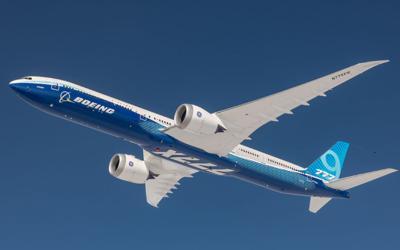Tue, Mar 01, 2022
Technical Advisory Boards to See Expanded Roles in Establishing Compliance
The FAA has announced progress in their use of independent external safety experts for certification of aircraft.

The expansion affects Technical Advisory Boards, groups composed of private and public safety experts for certification of commercial, GA, and autonomous aircraft. The changes agument the previous Aircraft Certification, Safety, and Accountability Act by promoting the establishment of the Advisory Boards earlier in the certification process. Now, different levels of Boards will be specified for differing projects, dependent upon the "project scope and the risks the aircraft could pose when it enters into service." The change is meant to accompany recent reforms to the certification process, like taking some duties out of the hands of manufacturers and giving them to independent experts. Additionally, moving things out of the manufacturer's umbrella enhances the transparency of the process - a needful addition following the issues that came to public awareness in the 737 Max debacle.
During a Board review, technical specialists, independent of a certification project they review, become familiar with the proposed design or change and how it would meet FAA regulation. Depending on the level of review, their responsibilities could include: Identifying new technologies, designs or design features that could be catastrophic if they failed; determining whether FAA project specialists reviewed all major issues; determining whether similar systems have caused problems on other aircraft; determining whether the proper FAA offices were involved in the certification process; and conducting secondary design reviews, procedure, and training evaluations." As an example, the agency notes the use of Technical Advisory Boards for the 737 Max and the upcoming certification review for the 777X.
More News
Pilot Also Reported That Due To A Fuel Leak, The Auxiliary Fuel Tanks Were Not Used On June 4, 2025, at 13:41 eastern daylight time, a Piper PA-23, N2109P, was substantially damage>[...]
Have A Story That NEEDS To Be Featured On Aero-News? Here’s How To Submit A Story To Our Team Some of the greatest new stories ANN has ever covered have been submitted by our>[...]
From 2023 (YouTube Edition): Reflections on War’s Collective Lessons and Cyclical Nature The exigencies of war ought be colorblind. Inane social-constructs the likes of racis>[...]
Aero Linx: Colorado Pilots Association (CPA) Colorado Pilots Association was incorporated as a Colorado Nonprofit Corporation in 1972. It is a statewide organization with over 700 >[...]
High Speed Taxiway A long radius taxiway designed and provided with lighting or marking to define the path of aircraft, traveling at high speed (up to 60 knots), from the runway ce>[...]
 NTSB Prelim: Piper PA-23
NTSB Prelim: Piper PA-23 ANN FAQ: Submit a News Story!
ANN FAQ: Submit a News Story! Classic Aero-TV: One Mans Vietnam
Classic Aero-TV: One Mans Vietnam ANN's Daily Aero-Linx (07.03.25)
ANN's Daily Aero-Linx (07.03.25) ANN's Daily Aero-Term (07.03.25): High Speed Taxiway
ANN's Daily Aero-Term (07.03.25): High Speed Taxiway



